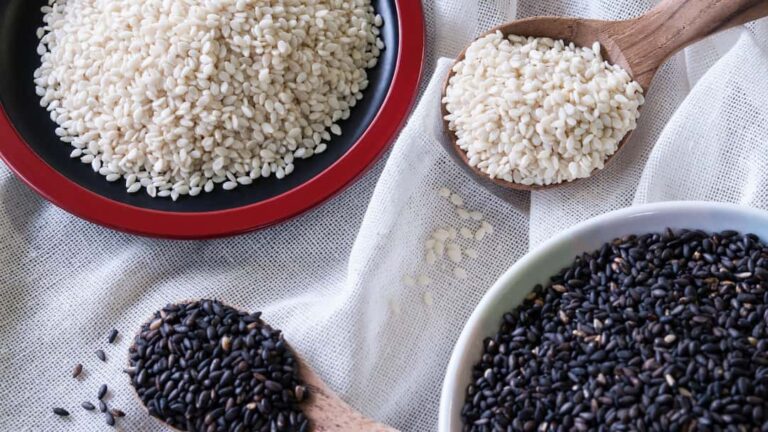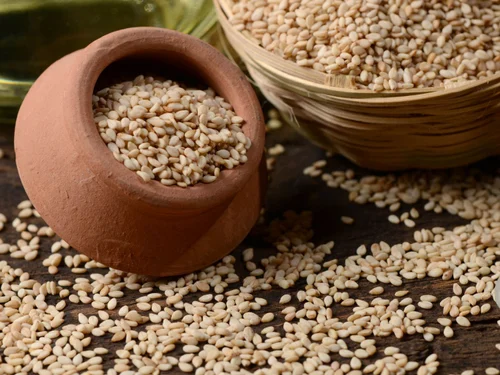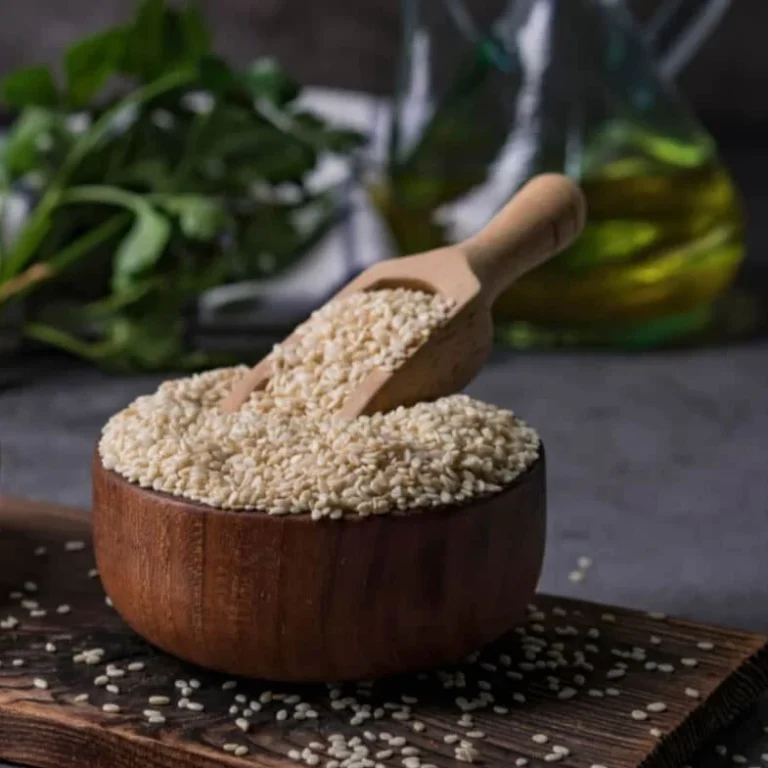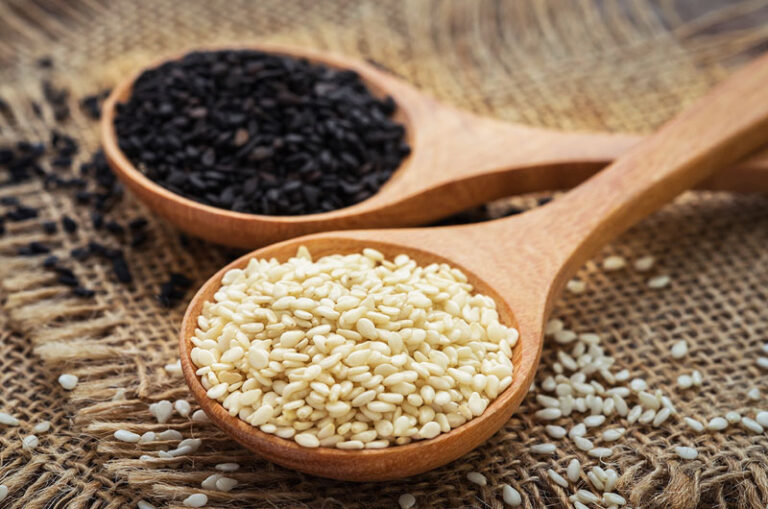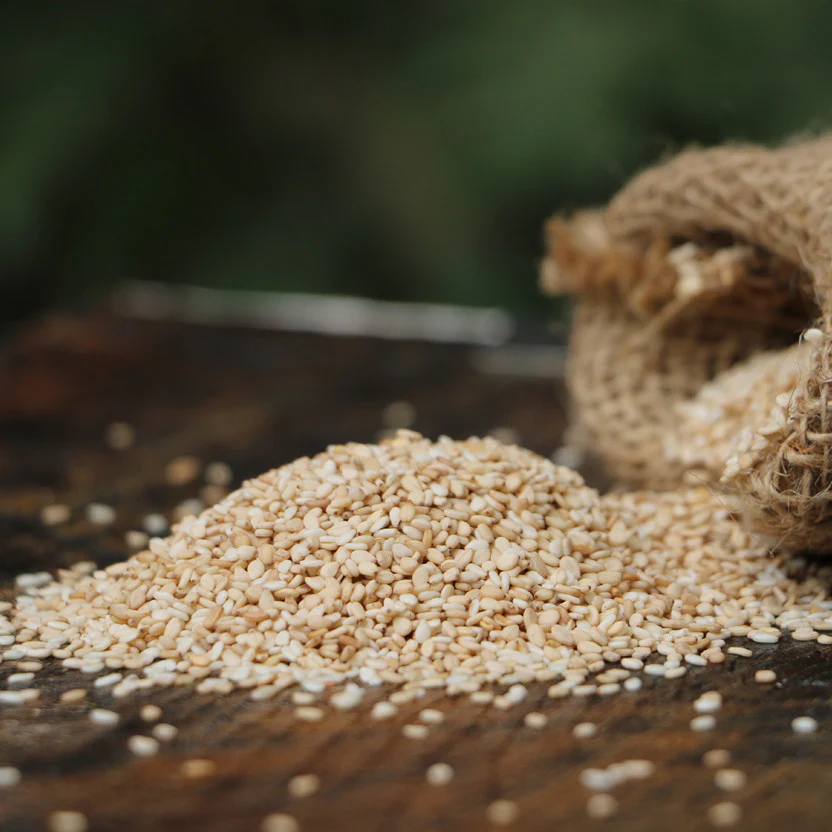
In today’s fast-paced world, the need for effective natural remedies to fight free radicals and oxidative stress is more crucial than ever. Free radicals are unstable molecules that can cause damage to cells, leading to inflammation, premature aging, and various chronic diseases. Fortunately, nature has gifted us with many powerful foods that can help combat these harmful molecules, and sesame seeds are one of the most potent contenders.
Not only are sesame seeds rich in nutrients such as protein, fiber, and healthy fats, but they are also packed with antioxidants that work to neutralize free radicals, protecting the body from oxidative damage. In this article, we will explore the relationship between sesame seeds and antioxidants, highlighting how these tiny seeds can contribute to a healthier, more vibrant life.
What Are Sesame Seeds?
Sesame seeds (known as til in some regions) are small, oval-shaped seeds that come from the sesame plant (Sesamum indicum). These seeds are rich in essential nutrients such as protein, healthy fats, fiber, and vitamins, making them an excellent addition to any diet. The antioxidants found in sesame seeds are among the primary reasons these seeds are considered a superfood.
The sesame seeds can be consumed raw, roasted, or in the form of sesame oil. They have a rich, nutty flavor and can be added to a variety of dishes, from salads to baked goods, smoothies, and even granola.
Understanding Antioxidants
Antioxidants are molecules that neutralize free radicals—unstable molecules that can cause significant damage to cells, proteins, and DNA. Free radicals are generated in the body as a result of metabolic processes, but they can also be triggered by environmental factors such as pollution, UV radiation, smoking, and poor diet.
The body has a defense system of antioxidants, but often, we need extra antioxidants from food sources to help boost this defense. This is where foods like sesame seeds come into play. The powerful antioxidants in sesame seeds help protect the body from oxidative stress and reduce the risk of diseases such as cancer, cardiovascular diseases, and other chronic conditions.
The Antioxidant Properties of Sesame Seeds
Sesame seeds are rich in several powerful antioxidants, including sesamin, sesamol, and vitamin E, which work synergistically to fight free radicals and prevent oxidative damage. These antioxidants have been extensively studied for their health-promoting properties, including their ability to reduce inflammation and lower the risk of chronic diseases.
-
Sesamin: This is a lignan compound found in sesame seeds that has powerful antioxidant properties. Studies have shown that sesamin helps protect cells from oxidative stress and reduces the risk of heart disease. It also has anti-inflammatory properties that contribute to overall health.
-
Sesamol: Sesamol is another potent antioxidant found in sesame seeds that works to protect cells from free radical damage. It has been shown to have anti-aging effects, support liver health, and protect the skin from UV damage.
-
Vitamin E: Vitamin E is a well-known antioxidant that helps protect the skin and other tissues from oxidative damage. It plays a crucial role in neutralizing free radicals and preventing premature aging. Sesame seeds are a great source of vitamin E, providing a natural way to support skin health and prevent the damaging effects of free radicals.
How Do Antioxidants in Sesame Seeds Protect the Body?
The antioxidants in sesame seeds work by neutralizing free radicals and preventing them from causing damage to cells and tissues. This protection is vital in preventing oxidative stress, which is a major contributor to the aging process and the development of diseases such as cancer, heart disease, and diabetes.
-
Reducing Inflammation: Chronic inflammation is one of the leading causes of many health problems, including arthritis, heart disease, and certain cancers. The antioxidants in sesame seeds, especially sesamin, have anti-inflammatory properties that help reduce inflammation in the body, providing relief from conditions such as joint pain and swelling.
-
Boosting Immune Function: Antioxidants also play a role in strengthening the immune system. By neutralizing free radicals, sesame seeds help boost the body’s natural defenses, making it more resilient to infections and illnesses.
-
Promoting Healthy Skin: Sesame seeds are a rich source of vitamin E, which is essential for maintaining healthy, youthful-looking skin. Vitamin E helps protect the skin from the damaging effects of UV rays and environmental pollutants, preventing premature aging and reducing the appearance of wrinkles and fine lines.
The Role of Sesame Seeds in Weight Loss
In addition to their antioxidant properties, sesame seeds can play a significant role in weight loss and weight management. The high fiber content in sesame seeds helps keep you feeling full longer, reducing the likelihood of overeating. Furthermore, the healthy fats found in sesame seeds, including omega-3 fatty acids, help support metabolism and fat burning.
Sesame seeds can be added to your diet in various ways—whether sprinkled over salads, added to smoothies, or enjoyed as a snack. Their high fiber content also helps regulate blood sugar levels, which is beneficial for those looking to manage their weight.
The Nutritional Power of Sesame Seeds
Apart from being a rich source of antioxidants, sesame seeds offer numerous health benefits thanks to their exceptional nutritional profile. Let’s take a closer look at what makes these seeds such a powerhouse:
-
Protein: Sesame seeds are an excellent source of plant-based protein, containing about 18 grams of protein per 100 grams. This makes them an ideal food for vegetarians and vegans, as they provide the necessary building blocks for muscle repair and growth.
-
Fiber: High in fiber, sesame seeds support digestive health by promoting regular bowel movements and preventing constipation. Fiber also helps regulate cholesterol levels and contributes to weight loss.
-
Healthy Fats: Sesame seeds are rich in healthy fats, including omega-3 fatty acids and omega-6 fatty acids, which support brain health, reduce inflammation, and promote cardiovascular health.
-
Calcium: Sesame seeds are one of the best plant-based sources of calcium, which is essential for strong bones and teeth. For those who do not consume dairy products, sesame seeds are an excellent alternative source of this vital mineral.
-
Magnesium: Magnesium is another essential mineral found in sesame seeds that helps regulate muscle and nerve function, blood pressure, and blood sugar levels.
Incorporating Sesame Seeds into Your Diet
There are numerous ways to incorporate sesame seeds into your daily meals, ensuring that you get the benefits of antioxidants and other vital nutrients. Here are some simple and delicious ideas:
- Sesame Seed Salad: Add sesame seeds to your favorite salad for an extra crunch and nutritional boost.
- Sesame Seed Smoothies: Blend a tablespoon of sesame seeds into your smoothies for added protein, fiber, and antioxidants.
- Tahini: Use sesame seeds to make tahini, a creamy paste that can be used as a spread or in dressings and dips.
- Baked Goods: Incorporate sesame seeds into baked goods such as bread, muffins, and cookies.
- Sesame Seed Granola: Combine sesame seeds with oats, nuts, and dried fruits to create a delicious homemade granola.
Conclusion
Sesame seeds are an antioxidant powerhouse that can help fight free radicals and prevent oxidative damage in the body. Rich in antioxidants like sesamin, sesamol, and vitamin E, sesame seeds support overall health by reducing inflammation, boosting immune function, and promoting healthy skin. Additionally, their high protein, fiber, and healthy fats make them a valuable addition to any diet.
By adding sesame seeds to your meals, you can harness their antioxidant benefits and improve your overall well-being. Whether you’re looking to enhance your skin health, manage your weight, or reduce inflammation, sesame seeds provide a natural, nutrient-dense solution to protect your body from the damaging effects of free radicals.

